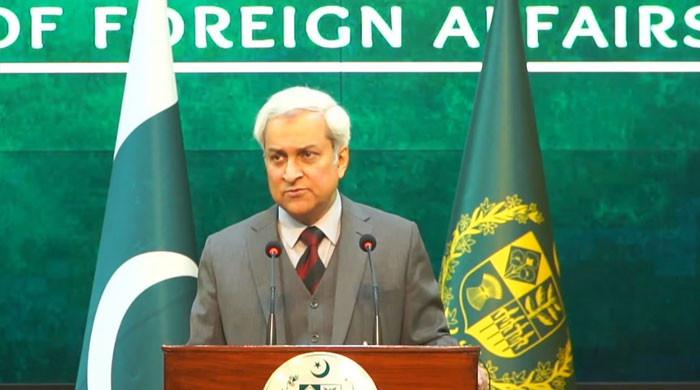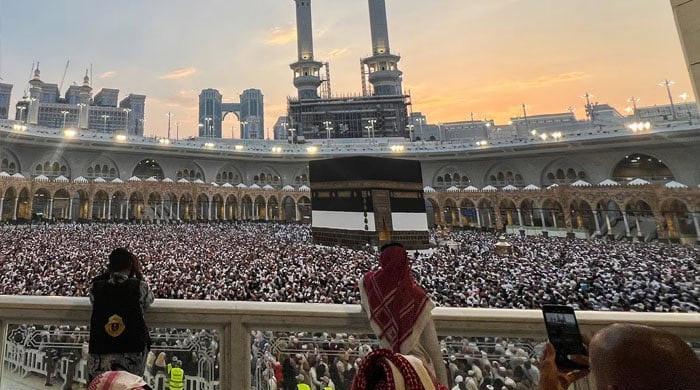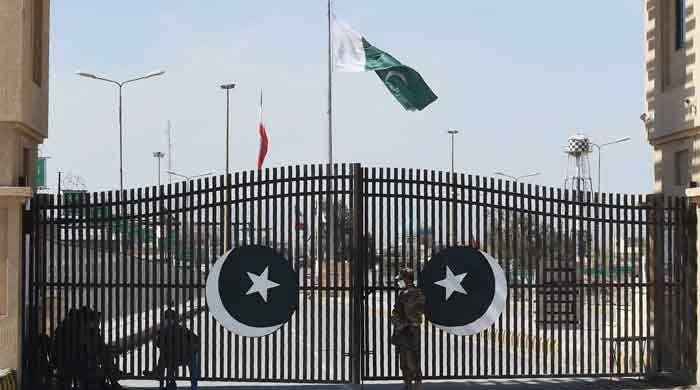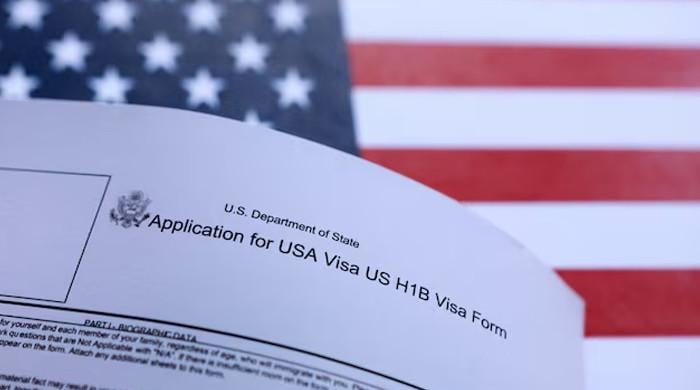'You idiot': Bilawal slams Fawad in clash over Indus River history
Fawad misinterprets term "Sindhu" as reference to Sindh, criticises Bilawal for turning national issue into provincial
June 28, 2025
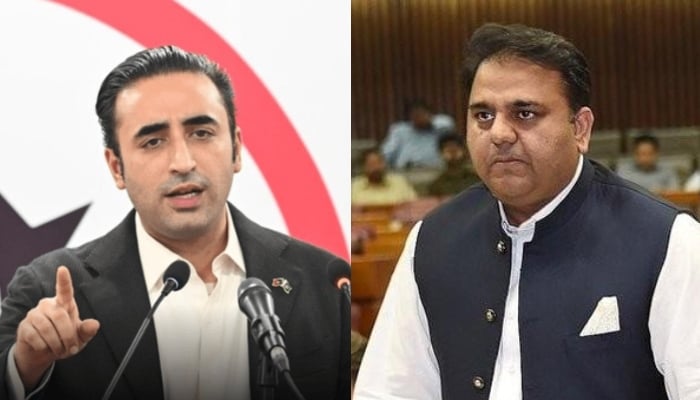
A diplomatic breakthrough on the Indus Waters Treaty (IWT) sparked a fiery political exchange on social media between Pakistan People’s Party (PPP) Chairman Bilawal Bhutto Zardari and former Pakistan Tehreek-e-Insaf (PTI) leader Fawad Chaudhry.
On Friday, Pakistan officially welcomed a Supplemental Award issued by the Permanent Court of Arbitration in The Hague, which upheld Pakistan’s position that India cannot unilaterally suspend the IWT.
The arbitration court's ruling confirmed that India’s unilateral actions could not undermine the jurisdiction of either the court of arbitration or the Neutral Expert in proceedings under the IWT.
In response to the development, Bilawal took to X, reiterating that India’s unilateral decision to suspend the decades old treaty was not recognised under international law.
"Sindhu pay hamla na manzoor. India’s unilateral decision regarding the Indus Water Treaty have no bearing in international law," the former foreign minister wrote.
The statement, referring to “attack on Sindhu,” appeared to frame the issue through a historical and civilisational lens.
However, Fawad seemingly misinterpreted the term "Sindhu" as a reference to Sindh province, and criticised Bilawal for turning a national issue into a provincial one.
The ex-minister responded to the PPP chairman's statement in another X post, saying that the "attack" was on whole Pakistan instead of Sindh, and said that Benazir Bhutto, who is Bilawal's mother, wouldn't have made such a statement.
"This [is] an attack on Pakistan, not on Sindh — unless you have also joined Sindhu Daish under GM Syed family… BB would never have made such a statement."
Chaudhry’s reference to “Sindhu Daish” appeared to link Bilawal's use of “Sindhu” to Sindhi nationalist rhetoric, invoking the name of GM Syed, who is known for advocating Sindhi separatism in the country's political history.
But Bilawal fired back bluntly: "You idiot. Sindhu River is the Indus River. The Indus Valley civilisation belongs to all of Pakistan."
Providing a historical clarification, the PPP chairman said that the word Indus is the Latinised version of Sindhu, which had been brought into English via the Greek name "Indos", which in turn was derived from the Persian pronunciation of Sindhu.
However, rather than addressing the etymological point, Fawad responded with a personal jab:
"Obviously you have no knowledge of politics on Sindhu. That’s the problem when you become chairman on a fake will and not through political process."
The heated exchange comes after the federal government, while responding to the development at the Court of Permanent Arbitration, reiterated its commitment to resolving the issue under the framework of the IWT and stressed the need for renewed diplomatic engagement between the two countries.
Prime Minister Shehbaz Sharif, in remarks made on June 24, also extended an olive branch to New Delhi. “Pakistan is ready to engage in a meaningful dialogue with India on all outstanding issues, including Jammu & Kashmir, water, trade and terrorism,” he said.
Following the killing of 26 people in Indian Illegally Occupied Jammu and Kashmir in April, India held the Indus Waters Treaty with Pakistan in abeyance.
New Delhi accuses Islamabad of orchestrating the deadly militant attack, an allegation that Pakistan denies.
On the basis of these baseless allegations, India started the war against Pakistan last month, which was the heaviest fighting to have occurred between the two neighbouring nations in decades, before a ceasefire was reached and brokered by the US.
The nuclear-armed neighbours disagree over the use of the water from rivers that flow downstream from India into the Indus River basin in Pakistan.
The use of the water is governed by the Indus Waters Treaty, which was mediated by the World Bank and signed by the neighbours in September 1960.
There is no provision in the treaty for either country to unilaterally suspend or terminate the pact, which has clear dispute resolution systems.





